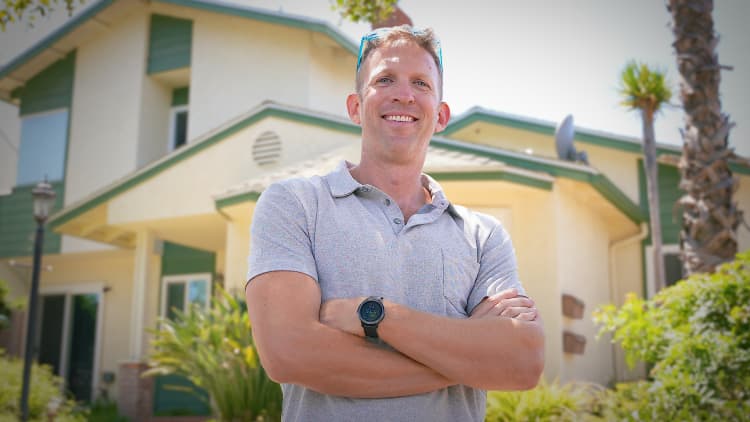It's tough to pin down exactly how many Americans don't have children and don't plan to have any. Going by census estimates, about 11% of Americans 55 and older are childfree, but recent data suggests that number may be growing.
About 1 in 5 adults said they don't want children in a recent survey of Michiganders conducted by researchers at Michigan State University. That's a relatively narrow swath of data, but because Michigan is demographically similar to the overall United States, it's reasonable to assume some 50 to 60 million Americans are childfree, the researchers say.
If those numbers are even close to accurate, millions of people are getting financial advice that isn't suitable to their needs.
"Most, if not all, financial rules of thumb assume you have kids," says Jay Zigmont, a certified financial planner and author of "Portraits of Childfree Wealth." Take the possibility of kids out of the equation, and "the whole foundation of your financial plan changes."
Traditional advice: 'That's the other script'
Much of the advice that crops up in long-term financial planning revolves around building something to pass on to the next generation, Zigmont says. For childfree people, "generational or legacy wealth matter a lot less," he says.
If you're not saving money for heirs, what exactly are you doing? If you're still aiming for traditional financial landmarks, such as retiring at 65, you may be following someone else's financial "life script" that doesn't match up with your goals, Zigmont says.
"You might think, 'I have my house.' That's the other script. 'I have to retire.' That's the other script. 'I need to save for college.' That's the other script," Zigmont says. "People start to mix these things up, because let's be honest, we're not doing a great job in the financial world of talking to childfree folks."
Here are three strategies Zigmont, who specializes in advising childfree clients, says childfree people can employ, even though they deviate from the standard advice.
1. Prioritize flexibility now
Zigmont deals with clients who have been stuck in a rigid system of delaying financial gratification. "I tell them, 'Look, you're going to die with millions in the bank, and that's a failure,'" he says.
Many of Zigmont's clients practice a lifestyle he calls "FILE" — a riff on the FIRE movement, it stands for financial independence, live early. The idea is, rather than saving as much as you can for the end of your life (and for your heirs), you can put some of your savings to work now to improve your lifestyle.
Maybe you want to live a nomadic life and work remote. "It's OK not to buy a house," he says. "It seems to be sacrilege with a lot of people, but renting is OK too."
If you and your spouse both work, maybe one of you wants to take a sabbatical. Or maybe you want to take a pay cut to pursue a lower-stress job and supplement your income with money from your portfolio.
That doesn't mean that you can forget about saving altogether — you still want to be financially stable for your entire life. But for many people, shifting the focus away from your post-65 years can mean living a more fulfilling life now.
"I tell clients, you can work 30 hours a week and be happy," says Zigmont.
But what about saving as much as possible for retirement? "If that's not the goal, let's live a better life now."
2. Invest 'backwards'
Under the classic model, investors would be wise to prioritize tax-advantaged retirement accounts, which come with major monetary benefits, but also penalties if you access the money before you hit retirement age.
If you're going to draw from your portfolio to fund your lifestyle earlier on, you'll need to turn this investing method on its head, says Zigmont.
Rather than prioritizing a traditional workplace account, such as a 401(k), Zigmont tells clients to focus on taxable brokerage and Roth IRA accounts, both of which can be accessed early (with some caveats) without incurring penalties.
"You might not do better in your taxable account than your 401(k), but the flexibility might be worth it," says Zigmont.
3. Plan for long-term care
One question childfree people tend to get: Who will take care of you when you're older?
Every family would answer that question differently, but from a financial planning perspective, the answer is likely, "I'll take care of myself," whether you have children or not.
Only 1.5% of parents had received money from a friend or family member in the last year, a 2018 Census study found. For what it's worth, the same was true of 2.5% of childless adults.
Still, end-of-life issues can be significant for childfree people, and planning early can help put people's minds at ease, says Zigmont. That means drawing up an estate plan and considering whether long-term care insurance might be worth buying, even as early as your 40s.
"That's when it's most reasonable to buy," says Zigmont. "It's stupid expensive, but for many clients, it's a way of alleviating a fear about this looming thing."
And to be clear, just because you're not spending your money on children doesn't mean it's OK to abandon core financial principles altogether.
"The basics are still the same. You're still getting on a budget and paying down debt," Zigmont says. "This isn't YOLO. It's just a different way of doing financial planning."
Sign up now: Get smarter about your money and career with our weekly newsletter
Don't miss: This 37-year-old quit her job and now makes $10,000 a month in passive income: ‘I wanted to be my own boss’



